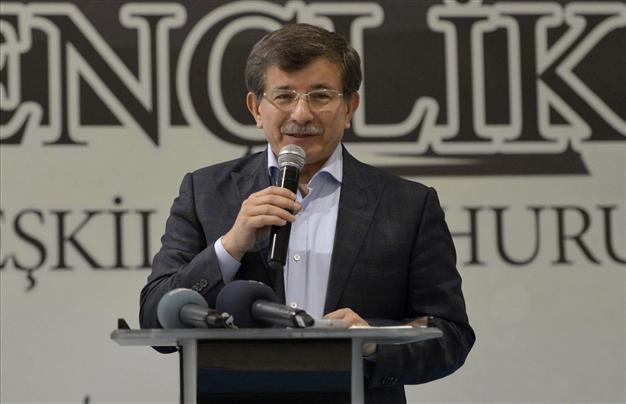VIDEO: Turkish FM Davutoğlu’s fiery Gaza speech rekindles ‘quagmire Middle East’ debate
ISTANBUL

AA Photo
Foreign Minister Ahmet Davutoğlu’s fiery speech on Israel’s military operations in the Gaza Strip has rekindled the debate in Turkey on whether or not to view the Middle East as a political “quagmire.”Speaking at a pre-dawn Ramadan meal organized by the ruling Justice and Development Party’s (AKP) youth branches in Istanbul’s Topkapı neighborhood on July 20, Davutoğlu denied the region was a quagmire, instead describing it as “the center of the divine revelation that raised consciences and humanity.”
Referring to the words of main opposition Republican People’s Party (CHP) chair Kemal Kılıçdaroğlu, Davutoğlu said “we will not let anyone call the Middle East a quagmire” and vowed to “work night and day to remove the colonialists from this region.”
In response to the reemergence of this familiar debate, Hürriyet columnist Mehmet Y. Yılmaz wrote that it is not easy to understand how Davutoğlu can “link the current situation of the Middle East as a quagmire to the revelation,” in reference to the Islamic belief that God revealed his final message to humanity through Muhammad via the angel Gabriel, starting in 609.
“[Davutoğlu’s] words are indeed related to his own inner journey and nobody’s business. He can believe what he wants and live accordingly, as this is his choice. But when it comes to linking the whimsicality and the errors in his foreign policy to God’s messages and Mecca and Medina, then it’s our right to say ‘Wow, my friend, stop there,’” Yılmaz wrote in his column on July 21.
The debate was sparked last month after Turkish Prime Minister Recep Tayyip Erdoğan claimed in a speech on June 17 that “calling the Middle East a quagmire is racism.”
Shortly after Erdoğan’s speech, daily Star columnist Mensur Akgün wrote the “quagmire” analogy was invented by the “Turkish elite” to create an “emotional distance with the East.”
“Turkey started to make peace with its East after the end of Cold War,” Akgün added, arguing that the opposition “criticized the government’s foreign policy without understanding the Middle East.”
















